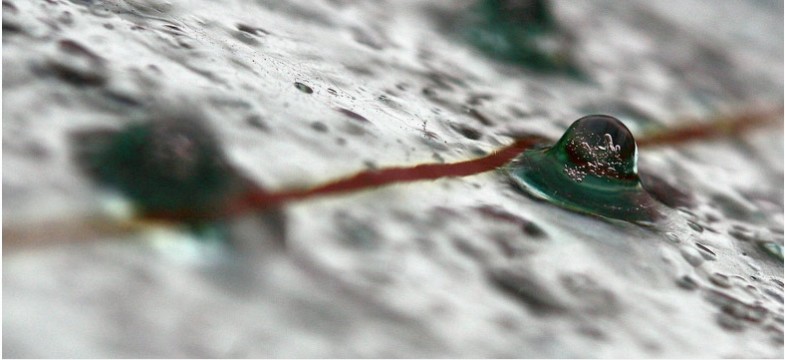Contents
A guest article in cooperation with health scientist Dr Birgit Schiel. |
Can Vitamin B12 Trigger Acne?
Some people claim that in the course of a high dosage vitamin B12 therapy they experience either an increased outbreak of spots, or the emergence/worsening of acne (1-3). In fact, many B12 supplements cause acne as a known side effect; until now it has not been fully explained why (4). In this article, we will explore some of the various theories that are currently in circulation, which outline the cause as:
- Excessive production of porphyrin by skin bacteria stimulated by B12
- A cobalt allergy
- Relative deficiency of vitamin B12 cofactors
- A detoxification reaction
Vitamin B12 Acne – The Work of Skin Bacteria?
Acne occurs as a result of inflammation in the hair follicles in the skin, caused mainly by bacteria of the species propionibacterium acnes. How exactly vitamin B can worsen acne was recently investigated in a special study (5). The results: if there is an excess of vitamin B12 in the skin, the gene activity of these skin bacteria changes and they produce more of a molecule that fuels inflammatory processes. The rough mechanism could also be clarified: if there is a lot of B12 in the skin, the bacterium reduces its own production of the vitamin. Instead of B12, the propionibacterium then synthesises porphyrin, which can trigger an inflammatory reaction in the skin cells that ultimately leads to acne. Research has shown that in acne patients, the genes that normally help the bacterium to produce B12 are usually inactive. Scientists assume that this is a typical consequence of too high B12 values in the environment of the bacteria.
Too Much Vitamin B12 Despite Deficiency?
Unfortunately, it has not yet been explained as to how these increased B12 levels occur in people with acne. Paradoxically, the symptom affects people who are actually being treated for a shortage of the vitamin. However, it is assumed that an increased B12 level only alters the gene activity of skin bacteria in some people – why this is also remains unclear. Observations have shown that acne occurs primarily in high dose therapy with injections. The B12 is absorbed very rapidly (1 h) after intramuscular administration, and bound to transcobalamin the vitamin is transported in the blood and reaches the skin cells very quickly via the capillaries. Due to such a fast intake through injections, the predisposition to acne (altered gene activity) probably leads to this skin reaction.
Vitamin B12 and Cobalt Allergy
Cobalt is the central atom contained within a vitamin B12 molecule, which is why a cobalt allergy can trigger acne in the course of vitamin B12 therapy (6). Vitamin B12 sensitisations are very rare and occur primarily as a result of injections. Many of the allergy complications that have been published so far have probably not been caused by the B12 molecule itself, but by accompanying substances (trace substances from biosynthesis). In theory, a B12 allergy can also be triggered by the central cobalt atom as a consequence of a primary cobalt allergy. An epicutaneous test in which pure vitamin B12 is applied (not just cobalt!) would then be positive. With regard to substitution in cases of existing B12 deficiency, the fact that B12 sensitisation is mainly triggered by injections makes it advisable to avoid intramuscular administration. Oral supplementation is preferable here, since smaller, oral doses are often better tolerated by the body.
Relative Deficiency of Other B Vitamins
The emergence of acne through vitamin B12 can possibly be mitigated through the combination of other vitamins – although no conclusive experimental investigations on this phenomenon have been carried out so far. The acne could therefore be a relative deficiency of other cofactors in this context, in particular:
- Biotin
- Folate/folic acid
Vitamin B12 Acne and Biotin
Biotin is required for an important metabolic step in the citric acid cycle of the mitochondria. Here it helps to convert propinonyl-CoA to methylmalonyl-CoA. B12 then converts this methylmalonyl-CoA mutase into succinyl-CoA in a further step. It is possible that an injection of B12 in this way leads to an increased consumption of biotin. This could cause a relative biotin deficiency and have an influence on the skin. But also, the opposite way is conceivable: if there is a lack of biotin, vitamin B12 cannot fulfil its function in the citrate cycle and remains unused in the tissue – possibly leading to the behavioural change of the skin bacteria already discussed.
Vitamin B12 Acne and Folic Acid
A deficiency of folic acid could also be a trigger for spots. Many therapists argue that vitamin B12 acne can be prevented by the simultaneous administration of active folic acid and biotin, although there have been no studies on this so far. An interaction with zinc is also currently being discussed, but the interrelation is quite complex and goes beyond the scope of this article. When vitamin B12 is supplemented and the skin appearance deteriorates, the folic acid and biotin status in the blood should also be measured. Field reports show that skin deterioration can partly be avoided if biotin and folic acid are simultaneously administered.
Acne as a Reaction to Detoxification
In alternative medicine circles in particular it is being discussed as to whether B12 acne could be a regulatory reaction to detoxification. This is due to the observation that B12 acne in some patients suddenly disappears during therapy and never returns.
This is interpreted as a sign of either completed regulation or detoxification. So far, however, there is no scientific documentation or research on this subject, which is why it is currently not possible to make any claims here.
What to do if Vitamin B12 Acne Occurs?
If the administration of a B vitamin supplement causes skin problems, such as the resurgence of juvenile acne, this may be due to a high vitamin B12 level in the skin or higher doses of vitamin B6 (pyridoxine). Anyone suffering from acne should be careful with regard to their conscious intake of vitamin B12, especially injections.
Possible counterstrategies:
|
Acne and B-Complex Vitamins
Two vitamins in the B-complex, B6 and B12, are suspected of promoting acne. What about the others? The following facts have been proven or are currently being discussed:
- Vitamin B1 (thiamine) does not have a direct effect on the skin, but its involvement in blood formation ensures rosy skin with good blood circulation
- Vitamin B2 (riboflavin) is important for keratinocytes and thus the skin barrier due to its positive effect on the fast-growing cells
- Niacin (vitamin B3) is an important vitamin for the protein metabolism, which is visible in the skin. It is essential for cell regeneration
- Pantothenic acid (vitamin B5) is contained in healing ointments as a precursor of dexpanthenol. Pantothenate prevents overproduction of the sebaceous glands
- Vitamin B6 (pyridoxine) is often discussed as a treatment for acne. However, the vitamin can promote the formation of keratinised cells on the surface of the skin and thus impede drainage from the sebaceous glands
- Vitamin B7 (biotin) is regarded as the beauty vitamin because it is particularly important for the maintenance of skin, hair and nails
- Folic acid (vitamin B9) is needed by the skin for cell division and supports various metabolic functions. It helps the skin to regenerate
- Vitamin B12 (cobalamin) plays a role in cell metabolism. It has been observed that in high doses it can trigger or even worsen outbreaks of acne
Conclusion: Vitamin B12 and Acne
The exact causes of vitamin B12 acne are still unclear. Only the connection with skin bacteria is scientifically well proven at present, but also leaves numerous questions unanswered. In many cases, there is only anecdotal knowledge on this subject from patients and therapists, which do not allow for a definite conclusion to be drawn. As a general strategy to avoid vitamin B12 acne, it is advisable to take oral supplements (as oppose to injections) and to control the intake of the cofactors folate and biotin.
About the Author:  Dr Birgit Schiel, life and social counselling (focus on health), individual diploma studies in health science – specialist area: pharmacy, doctorate degree in natural sciences, scientific consultant at Pro Medico.
Dr Birgit Schiel, life and social counselling (focus on health), individual diploma studies in health science – specialist area: pharmacy, doctorate degree in natural sciences, scientific consultant at Pro Medico.
Contact: beratung@purecaps.at
Sources
- K. F. Pietrzik, M. Hages. Gutachten: Mögliche Nebenwirkungen von Vitamin B1, B6 und B12 in einem vorgegebenen Dosierungsbereich. Klinische Bedeutung von Vitamin B1, B6, B12 in der Schmerztherapie. Steinkopff-Verlag Darmstadt. 1988. pp 95-117.
- Dupré A, Albarel N, Bonafe JL, Christol B, Lassere J. Vitamin B-12 induced acnes. Cutis. 1979 Aug;24(2) 210-211. PMID: 157854.
- Ilknur Balta , Pinar Ozuguz. Vitamin B12-induced acneiform eruption. Cutaneous and Ocular Toxicology. Vol. 33, Iss. 2, 2014
- Bettoli V, Zauli S, Montis A, Ruina G, Virgili A. Acneiform eruption due to vitamin B12: a problem still unsolved. G Ital Dermatol Venereol. 2014 Feb;149(1):153-5. PubMed PMID: 24566579.
- Kang, Dezhi, et al. Vitamin B12 modulates the transcriptome of the skin microbiota in acne pathogenesis. Science translational medicine, 2015, 7. Jg., Nr. 293, S. 293ra103-293ra103.
- Brescoll J, Daveluy S. A review of vitamin B12 in dermatology. Am J Clin Dermatol. 2015 Feb;16(1):27-33. doi: 10.1007/s40257-014-0107-3. Review.
Photo: Auto Acne by liz west Licence: cc-by


